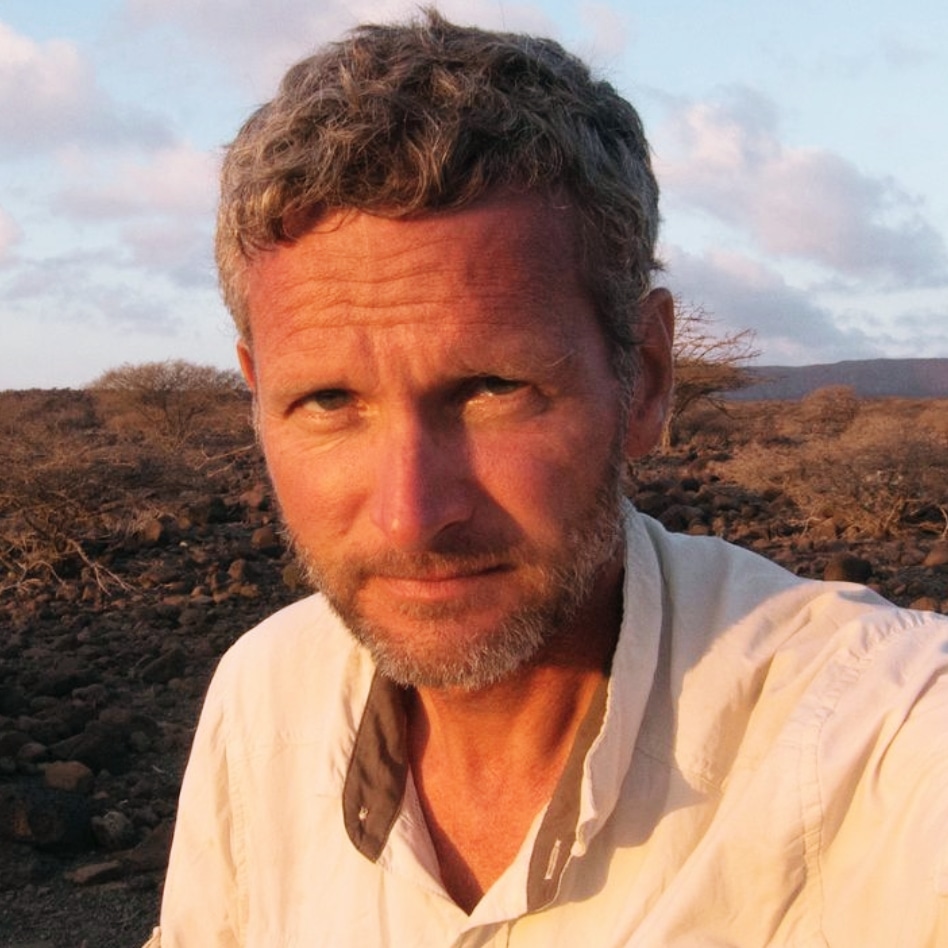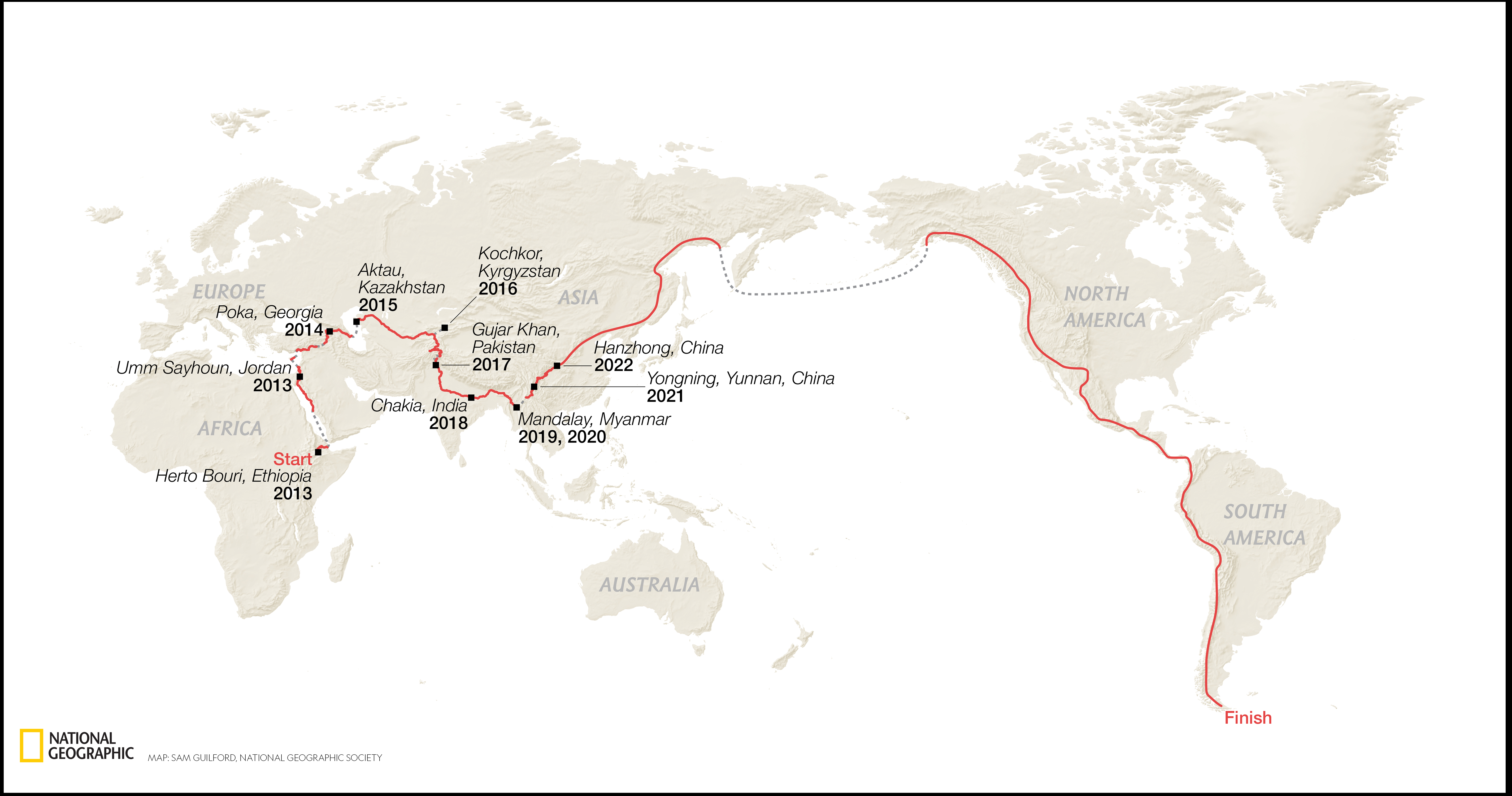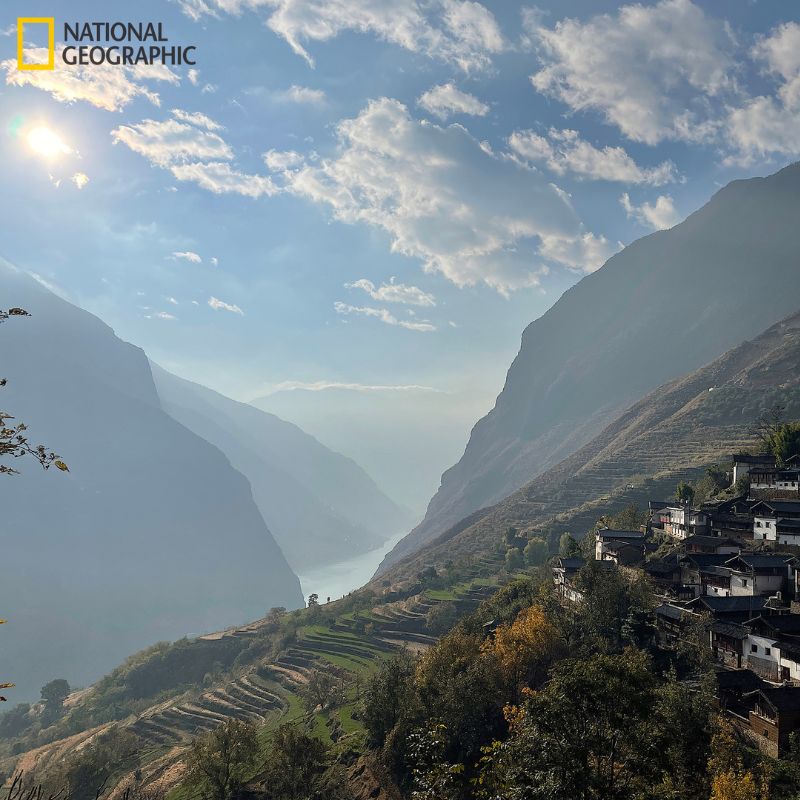Ever since I heard about the National Geographic Explorer Paul Salopek and his Out of Eden project which sees him walking across the globe following in the footsteps of the first humans who migrated out of Africa I’ve been utterly fascinated by his journey. Setting out over ten years ago in January of 2013, Paul has walked varying landscapes across multiple continents. To date, his journey has taken him from one of the world’s oldest human fossil sites in Ethiopia, through the Middle East and Central Asia, and now into China, where he’s been since October 2021. His final destination, due to be South America’s Southernmost tip Tierra del Fuego, will be reached in around three to four years if all goes to plan.
Eager to learn more about his monumental journey and the lessons he’s learned so far I caught up with the Pulitzer Prize-winning journalist on a video call from his current base in Dongbei, Northeastern China.
 |
| National Geographic Explorer Paul Salopek (photo: Paul Salopek, National Geographic Society) |
The 30-minute chat with Paul was so fascinating I’ve decided to break it into three sections. This, the first, focuses on Paul’s journey so far, and discusses changes to the natural world, the fragility of our planet, and poignant moments from the past eleven years, while the second delves into a couple of countries on a deeper level including a few of my personal favorites; India and Georgia. And the third reveals some of the more practical aspects of Paul's multiyear journey, I hope you enjoy reading.
 |
| Paul's route (Map credit: Sam Guilford, National Geographic Society) |
Lydia: Hi Paul, thank you so much for taking the time to talk with me, can you tell me a little about where you are right now?
Paul: I just finished walking through a region called Dongbei, which is Northeastern China, it used to be called Manchuria, it’s north of Beijing, kind of on the way to the Russian border. It’s sub-Siberian, there are rolling mountains with mixed hardwood deciduous and conifer forests. Of course, it’s quite cold, sometimes 20 below. The walk is paused here for winter and will resume in the spring. I’m still trying to decide which way to go.
Lydia: How much longer do you anticipate the journey taking?
Paul: I don’t know exactly, maybe three to four years. It’s very difficult to plan a long walk. It depends on the weather, politics, and logistics, so yeah, maybe three or four years perhaps.
 |
| The mountains of Yunnan, China (Photo: Paul Salopek, National Geographic Society) |
Lydia: Tell me a little bit about the Out of Eden Walk and if you can remember, a few poignant moments from the past decade? Paul: The project has sort of become my life, and I no longer see it as a travel project. We’re trying to do an experiment, trying to duplicate the psychology of the first people who dispersed out of Africa. I’d already been to many of the countries that I’ve walked through previously as a foreign correspondent, often as a war correspondent; Central Asia, Africa, and the Middle East, I was covering wars in those places before I started this walk and so it’s been like a re-visioning of a personal landscape, this time much more slowly, and on foot, and so in that way they became new to me. And of course, many of these places are now at peace, some aren’t, but many of them are. And so to see, and become familiar with these places, like the Horn of Africa, where I started, and covered the Somali war for many years and the Ogiden war, and be able to walk through some of these landscapes with normal average people who are not carrying guns was a highlight, it was kind of a new way to look at an interior landscape that had been fixed in memory in a certain way and had now been transformed. The Horn of Africa was special for that in my memory. The Middle East as well, and Afghanistan, walking through Afghanistan, at least the Wakhan Corridor was a wonderful revisiting of that internal landscape in a time—at least when I walked back through it—that was relatively peaceful.
Lydia: You must have seen some wonderful wildlife on the way?
Paul: The only place where I saw big charismatic animals, the ones that appear on National Geographic specials, is the Horn of Africa. Hearing a lion roaring at night in Ethiopia, having a hyena pad through our camps after dark, and seeing ostrich or antelope sprint by, was kind of the first, and for many many years the last time I saw a lot of wildlife. The next time would have been a few antelope in central Asia, and some kind of tropical rainforest biota, in northern Myanmar and in southwestern China, where the bird life is extraordinary.
Lydia: And how about natural landscapes, which places stand out?
Paul: In southwestern China, the botany especially is particularly diverse, there are thousands of species of plants. But I’ve got to be honest, the sad thing is how little nature there is along my route. There’s little wild nature and it’s partly an artifact of my route, I’ve been walking through some of the oldest human-inhabited environments on the planet starting in Africa through the Fertile Crescent, places that have had advanced civilizations going back thousands of years so that the landscape has been quite transformed by the human presence, there’s a pretty heavy thumbprint.
My melancholic conclusion is just how much we’ve fucked up the planet. It’s pretty sad and pretty sobering, it’s more than sad, it’s terrifying actually. And walking is a really good way to appreciate that because you can’t just zip by squinting, it’s there every day you wake up. Enormous surfaces of the earth have been transformed by industrial farming, enormous surfaces. Rivers have been diverted. There’s an enormous amount of resource extraction going on everywhere. We have truly transformed the biosphere of this planet and I’m not sure that has sunk in, especially to people who don’t get outside much.
The second part of my interview with Paul Salopek focuses on India and Georgia. Follow Paul’s journey at @outofedenwalk.



Post a Comment